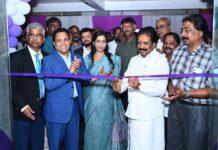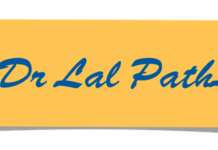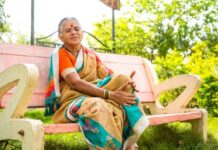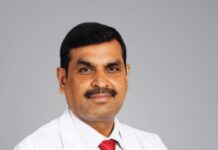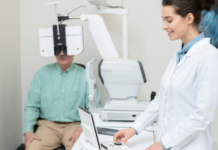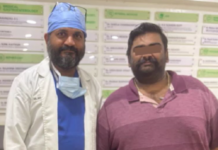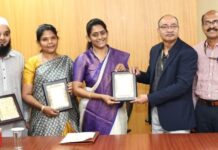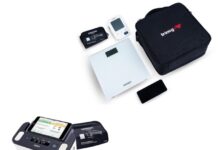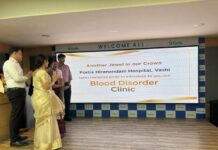New Delhi, September 25, 2020: World Lung Day (WLD), 25 September, is a day for lung health advocacy and action, an opportunity for us all to unite and promote better lung health globally.Respiratory infections have been with us for a very long time and will continue to be a major source of human suffering and death.Virus, bacteria, fungi and other organisms can infect respiratory system and cause infections which interfere the normal breathing causing common cold, sinusitis, pharyngitis, epiglottitis, laryngotracheitis, bronchitis, pneumonia, etc.
Pneumonia is the leading cause of death in children and in the elderly.Nearly 80 percent of deaths are in children under 2 years and adults above 65 years. Almost all deaths occur in low and middle-income countries.
Each year there are 10 million new cases of tuberculosis (TB) and 1.5 million deaths. Deaths from TB occur mostly in children under 5 years and adults in the 20-35 year age range. Over 95 percent of TB deaths occur in low- and middle-income countries.
COVID-19 is one such viral respiratory infection that has affected more than 25 million people worldwide and nearly 860,000 have died by the beginning of September 2020. The burden is likely to increase exponentially in the near future. Apart from the initial morbidity and mortality, recently long term consequences are also being increasingly recognized. The extent and severity of the long term respiratory complications of covid-19 infection remain to be seen, but emerging data indicate that many patients experience persistent respiratory symptoms months after their initial illness. As per a recent study, 3-months after discharge, residual abnormalities of pulmonary function were observed in 25.45% of the cohort, mostly demonstrated diffusion reductions in DLCO.
It is necessary to follow up these patients, performing comprehensive assessment and early rehabilitation exercise for detection and appropriate management of any persistent or emerging long-term sequelae of COVID-19. Pulmonary rehabilitation takes a central seat in the management of post Covid lung fibrosis and is available only at handful of centres across the city.
Pulmonary rehabilitation (PR) has demonstrated physiological, symptom reducing, psychosocial, and health economic benefits in multiple outcome areas for patients with chronic respiratory diseases. It is a standard of care alongside other well-established treatments (such as pharmacotherapy, supplemental oxygen, or noninvasive ventilation) for patients with a chronic respiratory disease.
Mentioned below are the cases of patients who underwent pulmonary rehabilitation at Sakra Institute of Rehabilitation Sciences, the first centre in Bangalore to have already running a Post Covid Rehab Clinic. The patients got benefitted from the pulmonary rehabilitation program and were consulted under the guidance of Dr Sachin Kumar, Senior Consultant – Pulmonology & Critical Care Medicine, Sakra World Hospital.
Patient experiences
Case 1: Mr. Ajay (Name changed) a 69 years old gentleman, diagnosed with Covid-19 was medically managed for 16 days and discharged from the hospital with continuous oxygen support of 4 litres/minute. Since he was on supplementary Oxygen support and was dependent on his family members even for basic self-care activities like bathing and dressing up. He could not even bend forward to pick anything from floor and even walking within the room was a tedious task. He started looking for a post Covid rehab facility and got re-admitted for Comprehensive Pulmonary Rehabilitation programme at Sakra World Hospital. He had issues in carrying out conversations due to breathlessness, making him dependent on supplemental oxygen. When he enrolled for the pulmonary rehabilitation, he expressed his concerns about not being able to spend quality time with his grandchildren & other family members. While undergoing comprehensive pulmonary rehabilitation, he was gradually weaned off from oxygen, his respiratory system improved and he showed significant improvement in his exercise tolerance. His 6 minute walk test distance (6MWT – standardized measure for functional capacity) improved from 170 metres at 4L/minute supplemental oxygen to 230 metres without any oxygen support. He regained the ability to independently do all activities of daily living and did not require oxygen support at all. He thoroughly enjoyed the yoga therapy sessions and was highly motivated to further continue rehab sessions on outpatient basis. He has shown great improvement in his overall quality of life and self-esteem and is committed to return to life to enjoy all that life offers.
Case 2: Mr. Sanjay (Name changed), a 68 year old gentleman from Mumbai learned about our programme and has enrolled for home based rehabilitation through video consultations. He was admitted in the ICU and was there for almost 18 days. He developed Pulmonary Fibrosis as a sequel to Covid infection and was on continuous oxygen support at 5-8L/minute. Any change in position even on the bed resulted in a drop in oxygen levels. He had feeling of chest tightness and was unable to sleep normally and had to be on a reclined position throughout in order to breathe comfortably. He was unable to walk even to the washroom and was using a commode chair next to his bed. He was emotionally low and was scared of total dependency as the days passed.
Case 3: Mr. Karthik (Name changed) a 47 year old gentleman had generalized weakness, loss of muscle mass and was not able to resume his office work due to Oxygen dependency. He enrolled for a home based rehabilitation through video consultations along with once a week centre based (OPD) rehabilitation. He was dependent on his family to climb stairs at his home to reach his bedroom as the Oxygen levels would drop, making him breathless. Training through the systematic protocols, he learned energy conservation techniques and gained better breathing control to cope up with his challenges. He is now independently climbing stairs and is determined to reclaim life.
Corporate Comm India (CCI Newswire)


